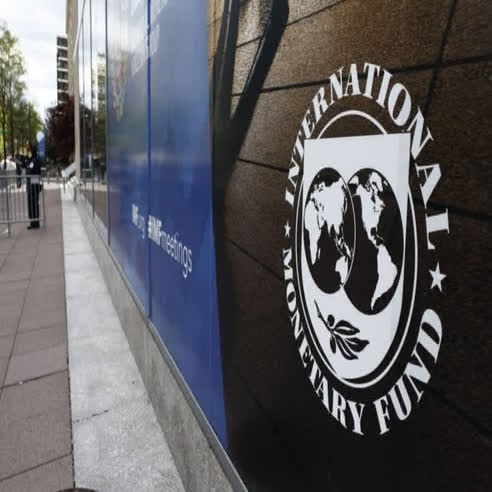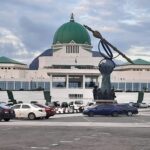Finance leaders from around the globe will this week gather in Washington for the semi-annual meetings of the International Monetary Fund, IMF, and World Bank Group.
This year’s discussions are expected to be dominated by one pressing issue: tariffs.
Recall that on April 2, US President Donald Trump announced tariffs of at least 10% on all goods entering the United States, affecting over 50 countries, including Nigeria, China, the United Kingdom, and Canada.
Some tariffs have reached as high as 50%, with China’s rates recently increased from 104% to 125%.
These have prompted widespread concern among global leaders, who are now seeking ways to minimise the economic fallout.
The meetings, which include high-level talks and one-on-one negotiations, provide a platform for finance ministers to broker deals on project financing, foreign investment, and debt relief.
Meanwhile, the spotlight this year is on how countries can mitigate the impact of Trump’s sweeping import tariffs, which have reportedly disrupted global trade since his return to the White House in January 2025.
Senior director of the Atlantic Council’s GeoEconomics Centre, Josh Lipsky, described the situation as unprecedented.
“Trade wars will dominate the week, as will the bilateral negotiations that nearly every country is trying to pursue in some way, shape, or form. This becomes a Spring Meetings unlike any others, dominated by one single issue,” Lipsky said.
The tariffs are said to have already cast a shadow over the IMF’s economic forecasts, set to be released on Tuesday.
IMF Managing Director Kristalina Georgieva has warned of notable markdowns but not recession, citing heightened uncertainty and market volatility caused by the trade turmoil.
While Georgieva noted that the global economy continues to function well, she also cautioned that negative perceptions could slow economic activity.
The focus of the meetings will reportedly largely focus on US Treasury Secretary Scott Bessent, Trump’s lead negotiator for tariff deals.
Bessent’s stance on supporting the IMF and World Bank remains unclear, raising questions about the future of multilateral development banks.
A former US Treasury official, Nancy Lee, stressed the importance of Bessent’s role in addressing these concerns.
“First and foremost, does the U.S. view support for MDBS as in its interest?” Lee asked.
Japan and South Korea are among the countries actively pursuing tariff negotiations.
Japanese Finance Minister Katsunobu Kato is expected to meet with Bessent to advance talks on auto and steel tariffs, while South Korean Finance Minister Choi Sang-mok will discuss delaying the implementation of 25% tariffs and exploring mutual interests in energy and shipbuilding.
World Bank President Ajay Banga has expressed uncertainty about whether the Trump administration will honor the $4 billion US contribution pledged by former President Joe Biden.
Banga is expected to outline the bank’s pivot toward energy financing, including nuclear and gas projects, as well as climate adaptation initiatives, aligning more closely with Trump’s priorities.
Click to signup for FREE news updates, latest information and hottest gists everyday
Advertise on NigerianEye.com to reach thousands of our daily users



